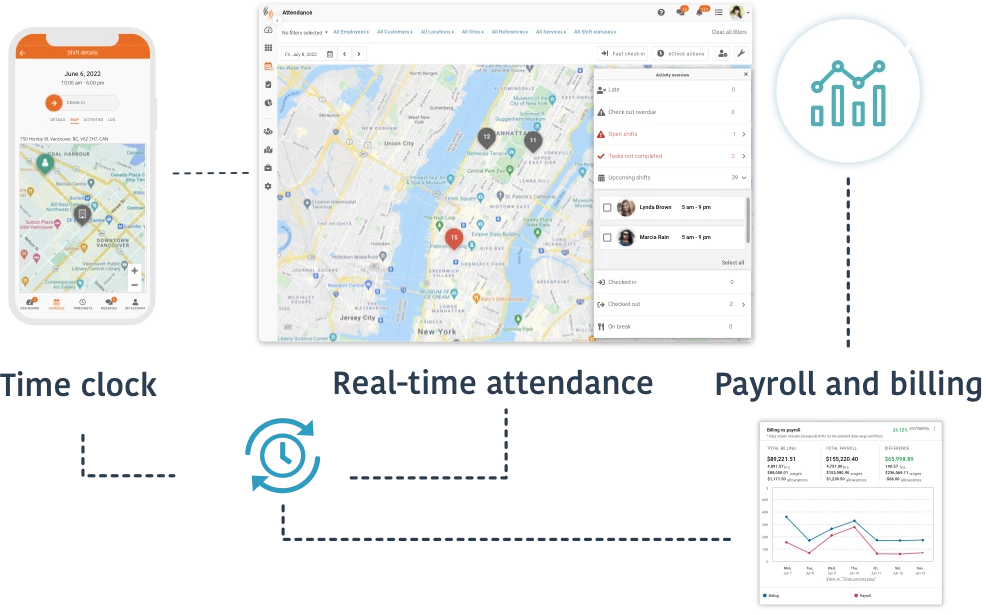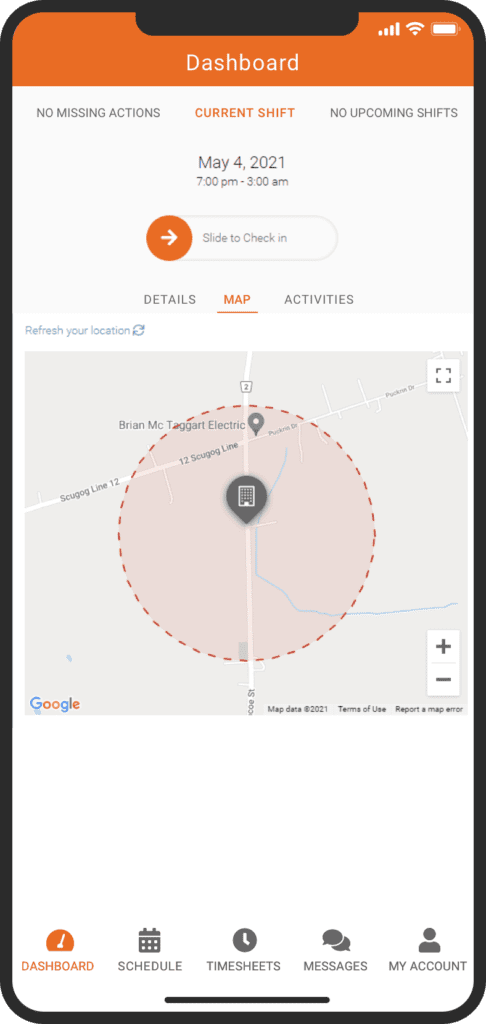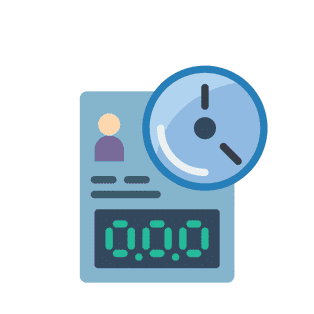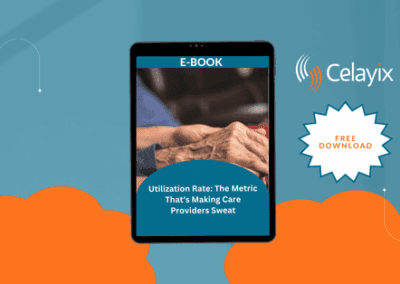If you manage shift workers, you know how important accurate time and attendance data is. Any time shift workers clock-in or out of a shift, the organization is susceptible to buddy punching! Paying for work that hasn’t been done can lead to accumulating costs pretty fast, especially if it happens multiple times a week.
What is Buddy Punching?

Buddy Punching is the act of clocking another employee’s timecard on their behalf. Employees exploit a loophole within the clocking-in and attendance system and receive pay for hours they don’t actually work. Such behavior is often perceived as trivial due to the lack of surveillance kept when punching one’s timesheet.
Companies that retain manual, outdated systems such as punch-cards and paper-based systems are especially prone to Buddy Punching. The manufacturing and construction industries are familiar with this problem, where time tracking for each employee is not always viable.
In general, there are 4 main reasons that Buddy Punching occurs;
- Bad Timekeeping
- Outdated Clocking Systems
- Unfamiliarity with the Repercussions
- Deeper issues that lead to Prolonged Absenteeism
According to a recent study, a company can lose as much as 7% of its profits due to time theft, often related to buddy punching.
Employee Authentication Methods
Time & attendance systems use a variety of methods to verify the identity of the person who is clocking in. Some ways are better than others, and combining multiple ways provides for stronger authentication of the employee.
All forms of authenticating people rely on one or more of these 3 approaches:
Something You Know
Passwords and Pins are the most common kind of authentication mechanism based on having the employee remember something and not disclose it to anyone else.
Something You Have
This method relies on the employee always possessing the assigned object. (e.g. keys, RFID or proximity cards, and time cards)
Something You Are
Something you are (e.g. fingerprints, retina scans, facial recognition) is based on what the employee is. This relies on something about the employee that does not change, like a fingerprint.
Impact of Buddy Punching
Buddy punching is a form of time and wage theft that is common among hourly workers. The impact of time theft through buddy punching may be felt in many different areas of the company. The costs associated with buddy punching can be divided into 2 categories: Direct and Indirect Costs.
INCREASED PAYROLL COSTS
Buddy punching costs businesses money. The unnecessary increase in payroll costs often takes place when a company is paying for overtime. Overtime pay due to inflated working hours from buddy punching creates trouble for the HR department. They are often tasked with making sure overtime doesn’t happen.
With time theft, employees demand pay for the hours they clocked in for, rather than what they’ve actually worked. As a result, if each employee attempts buddy punching or any other time theft, overtime and other payroll costs significantly increase.
Research carried out by the U.S. Bureau of Labor Statistics suggests that a simple payroll loophole could cost U.S. employers more than $373 million every year.
SKEWED PRODUCTIVITY LEVELS
The productivity of an employee is calculated by measuring the amount of work generated divided by the number of hours worked within a time period. Through buddy punching, the amount of work generated will be much less than what is expected.
As the number of working hours clocked increases, an employer expects the outcome to also increase. But with no change in outcome, the productivity levels will consequently start to decrease. As a result, levels of productivity will be negatively skewed and this could create other indirect costs for the company.
DECREASED EMPLOYEE ENGAGEMENT
Decreased employee engagement can actually be both the cause of and the result of buddy punching. Employees could find themselves disengaged in work and isolated. This could result in employees buddy punching in order to earn money without spending long hours at the workplace. It might be the case that buddy punching isn’t the bigger problem for the employers, but the prolonged absenteeism might be.
On the other hand, buddy punching may be just a loophole employees have found to generate wages without working. Consequently, time theft may lead to fewer hours worked in the workplace than required, resulting in lesser time with the company and other employees. This can lead to lower engagement between employees and the company.
- 43% of hourly workers surveyed admit to exaggerating the amount of time they work during their shifts.
- One-quarter of respondents say they report more hours than they actually worked 76 to 100% of the time.
So, how does an employer prevent this from happening?
Why do employees engage in buddy punching?
Employees engage in buddy punching to ensure an absent employee gets paid for hours they didn’t actually work. The missing or late employees still get paid for their full hours despite not working them. It may be a case of simply bad timekeeping but when it becomes a common occurrence it will lead to payroll fraud. Your organization should take this seriously.
OUTDATED TIME TRACKING SYSTEMS
Another reason why employees engage in budding punching is if they know they can get away with it. Ineffective clocking in systems or outdated timesheets makes it easy for employees to clock in for their friends. Employees can even share usernames and passwords with one another to help cheat the system. It’s important to have up-to-date systems with effective features in place to prevent buddy punching.
UNFAMILIARITY WITH REPERCUSSIONS OF BUDDY PUNCHING
Often, employees regard buddy punching as something harmless that helps a friend out. It might even be part of the company culture? They aren’t aware of the effects it can have on the business as well as the productivity levels of their team. Research illustrates how the loophole of buddy punching could cost US employers over a whopping $373 million every year. Late employees undermine their coworkers as they get the same wages for unequal work.
UNENGAGED WORKFORCE
Time theft may be a result of unengaged employees who are simply only in work to earn money, have low interest in their role, and don’t feel appreciated in work. Job dissatisfaction can occur when employees feel resentment towards a workplace. When employees have no control over their schedule and are unhappy with their assigned hours they may struggle to meet shifts in a timely manner. This will lead them to engage in buddy punching.
In contrast, we have found that employees with control of their schedule will lead to more productive and happier team members. You should recognize these negative patterns amongst employees and implement changes. You can read our previous blog post here on tips to build an engaged workforce.
Your company needs protection from this form of time theft. Here are some ways in which you can reduce and even eliminate buddy punching for your hourly-paid employees.
How to Prevent Buddy Punching?
Fortunately, there is a solution to this problem. Here are some of the ways that you can reduce, and even eliminate buddy punching in your organization:
GEOFENCING
Geofencing is when an employer creates a virtual barrier around the workplace. To reduce buddy punching, a geofence will prevent employees from clocking in or out unless they’re within the geofence boundary. Geofencing relies on WiFi, cellular data, and GPS. These features make it one of the most dependable solutions to buddy punching.
Geofencing features may be provided within different Mobile Timekeeping Apps, such as the Celayix Mobile App. These apps can make it much easier for employees to clock in and out with their phones. Provided the employees are within the geofence boundary, Check-in/Out with Geofencing allows and ensures precise time capture for your timesheets.
BIOMETRIC TIME CLOCKS
Biometric systems are hardware systems installed in the workplace used for verification of identity. Unlike other time clocks with pins or passcodes, a biometric system requires personal fingerprints or other biometrics to clock in/out. While this allows one’s privacy to be maintained, it’s main feature is to effectively reduce buddy punching and improve security in the workplace.
Celayix’s iFace800 and other latest products are likely compatible with your time & attendance systems. With such Biometric systems, time theft can be reduced by as much as 97% because of the requirement of a unique fingerprint, handprint, or even retina scan. Biometric Time Clocks may seem expensive to implement, but it’s effectiveness makes up for all the financial costs associated with buddy punching.
BUILDING A CULTURE OF TRUST AND TRANSPARENCY
Finally, the reason behind buddy punching must be discovered, and any solution requires a sense of trust and transparency between employers and employees. While formal policies such as zero-tolerance may help reinforce discipline and reduce time theft, it is vital that there is a culture of Trust and Transparency within the workplace that would help reduce any attempts of time theft.
Such a culture is always deemed positive in the workplace, and allows employees to feel accountable for their actions. Buddy punching and other types of time theft can be consequences of employee isolation and decreased employee engagement, and hence it is important that employers communicate with their employees and set expectations and guidelines in employee contracts or handbooks.
Buddy Punching and Absenteeism: How it’s all Connected
Absenteeism refers to the habitual non-presence of an employee at their job. Habitual non-presence extends beyond what is deemed to be within an acceptable number of days or time away from the office for legitimate causes. If you are unaware of what absenteeism is, or how it affects you, take a look at our blog on ‘The True Causes & Costs of Absenteeism in the Workplace’.
So far, we’ve covered the 4 reasons behind buddy punching, and the last one explores the relevance of absenteeism as the cause for buddy punching. How so?
Absenteeism can often take place due to a lack of an effective time & attendance system. Absenteeism leads to increased costs, reduced output and certainly leads to lower engagement with your workplace. Looking back at what was said about a culture of trust and transparency, lack of communication between employees and employers may result from absenteeism.
The need of the hour is an affordable and easily-implementable time & attendance system. However, it may not necessarily be just used to reduce absenteeism. Buddy punching is another way where time and productivity are lost.
Just a simple time & attendance system may not be enough. It’s important that a company or a workplace sets a set of guidelines that tackle the issue of time theft and prolonged absences collectively.
By combining these guidelines with an effective time & attendance software such as Celayix’s software, employees will start to use their time at the workplace more productively, and consequently, you will be able to reduce buddy punching as well as absenteeism.
If you’re ready to eliminate Buddy punching in your organization, check out a free, personalised Demo here!








